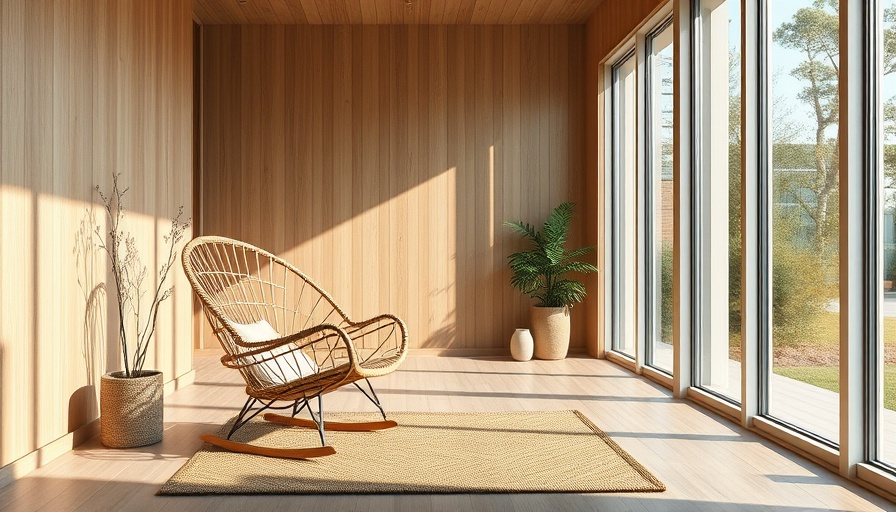
Transforming Spaces: The Potential of Your Brooklyn Basement
Are you sitting on a hidden asset in your Brooklyn home? In today’s competitive real estate landscape, converting your basement into a legal Accessory Dwelling Unit (ADU) is more than just a renovation; it's a smart investment. With the increasing demand for rental units, homeowners can enhance their property value while generating passive income through innovative space utilization.
Navigating the Basics of ADUs in Brooklyn
The first step to transforming your basement is understanding the concept of an Accessory Dwelling Unit. An ADU is a second housing unit located on the same property as the primary residence. Ideal for the dynamic Brooklyn market, ADUs provide affordable living options and help address the area’s housing shortage. With recent changes in zoning laws, homeowners are now empowered to easily convert unutilized areas into valuable rental properties, maximizing their investment in a booming urban environment.
Compliance is Key: Legal Considerations for Basement Conversions
Before embarking on your renovation journey, it's vital to familiarize yourself with New York City's legal requirements. Each borough has specific zoning regulations and building codes that must be adhered to. Take the time to research the following:
- Zoning Regulations: These laws dictate what can and cannot be built in your area. The NYC Department of Buildings is an essential resource for understanding your property’s zoning requirements.
- Building Codes: These ensure that your renovation meets safety standards. Consulting with a knowledgeable contractor or real estate attorney can help you navigate these critical guidelines.
- Permits: Many renovations require permits, and having these in place not only keeps your project legal but also helps avoid fines or future complications.
Failing to adhere to local laws can lead to costly repercussions, so ensure you're well-acquainted with the necessary legal frameworks.
Designing a Profitable Legal ADU
Now that you're clear on the legal aspects, it’s time to focus on design. A well-planned ADU can attract more renters, thus maximizing your return on investment:
- Focus on Functionality: Layout is crucial. Consider an open concept that makes the space feel larger, while still allowing for necessary amenities.
- Quality over Quantity: Invest in durable materials and fixtures. A quality space will appeal to potential tenants and yield higher rent.
- Insulation and Lighting: Proper insulation is key for comfort and energy efficiency. Natural light can transform a basement into a warm, inviting area.
Cost Considerations: Budgeting Your Basement Conversion
While renovations can be costly, proper budgeting will keep your project viable. Start with a detailed cost estimate, including labor, materials, and permit fees. Allocate a contingency fund of at least 10% to account for unexpected expenses. Here are some tips to manage costs effectively:
- Plan for Phases: If budget constraints are a concern, consider spreading the renovation over phases, starting with essential structural work.
- DIY Elements: Where possible, incorporate DIY efforts for non-technical aspects of the renovation, such as painting or furniture selection.
- Engage Local Experts: Seek out local contractors who understand the nuances of Brooklyn renovations to get the best value for your budget.
Embracing the Future: The Demand for ADUs
The rise of remote work has led to a growing need for flexible living arrangements. Urban areas like Brooklyn are seeing an influx of younger renters seeking affordable housing close to their work or schooling. By creating a legal ADU in your basement, you’re not just investing in your home; you’re contributing to a larger solution to housing demands in your community.
Call to Action: Take the Leap into ADU Conversion
If you're ready to unlock the potential of your Brooklyn basement, start by conducting thorough research into local zoning laws and regulations. Consult with professionals who can guide you through the legal landscape, ensuring that your investment is both profitable and compliant. Transform that idle space into a thriving revenue stream today – any moment spent waiting could mean lost rental income!
 Add Row
Add Row  Add
Add 




Write A Comment